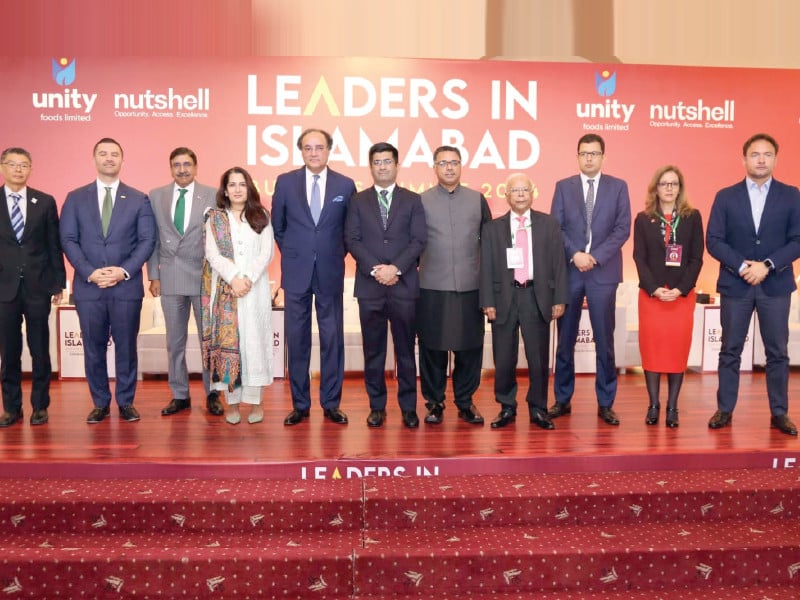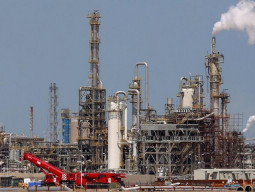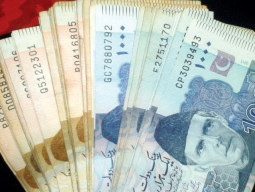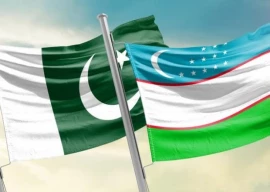
Finance Minister Muhammad Aurangzeb stated on Tuesday that Pakistan’s gross official foreign exchange reserves would increase to $10 billion in two months, as the International Monetary Fund is set to approve the $1.1 billion final loan tranche on Monday.
The minister also unveiled his strategy to avoid any future International Monetary Fund (IMF) programmes but only after obtaining a new “large and longer” 24th programme. His strategy revolves around enhancing exports, foreign direct investment (FDI), and raising debt from global markets – the three pillars that every finance minister has been attempting to implement during the past 16 years with varying degrees of success.
The finance minister also took a jab at his predecessor, stating that “no one can imagine a plan B with only 15 days of reserves” – in a veiled reference to former Finance Minister Ishaq Dar’s mention of Plan B in 2023 when the country was struggling to secure the IMF bailout package.
Aurangzeb spoke at the inaugural session of the 7th Edition of the “Leaders in Islamabad Business Summit” (LIIBS).
This edition of the summit has been jointly hosted by Nutshell Group and Unity Foods Limited, in collaboration with OICCI (Overseas Investors Chamber of Commerce and Industry), with Faysal Bank Limited as the Platinum partner, and InfraZamin Pakistan as the strategic partner. The theme of the event this year is ‘Collaborating for Growth.’
Aurangzeb stated that the $3 billion Stand-By Arrangement (SBA) was absolutely critical for Pakistan, and the IMF has now commended the country for successfully completing the programme.
The Fund has already disbursed $1.9 billion under the SBA, and its executive board is set to approve the last loan tranche of $1.1 billion on April 29th, according to Ministry of Finance officials.
Aurangzeb mentioned that the last loan tranche is expected to be disbursed next week, and the country is also anticipated to secure more inflows in June. This would help increase the foreign exchange reserves to the $10 billion mark, he added.
Reserves held by the central bank are currently just over $8 billion. A major reason for sustaining the reserves at their current levels is the massive buying of US dollars from the local markets by the State Bank of Pakistan, according to central bank sources.
They stated that the purchases from the market have already exceeded the size of the current IMF programme.
While the massive purchases have helped sustain the foreign exchange reserves at the current level of $8 billion, they have also contributed to keeping the rupee-dollar prices higher at Rs279 to a dollar.
The finance minister mentioned that an IMF mission would visit Pakistan by mid-May to negotiate the new deal.
However, he stated that the size and duration of the programme were not known at this stage. He hoped to reach a staff-level agreement by the end of June or early July.
The minister stated, “We had a very good discussion with the IMF in Washington, with a view that we go for a larger and a longer programme. We will start discussions on the contours of the programme when the IMF mission visits Pakistan in the middle of May, and we are hoping that if all goes well, and we agree on privatisation, we can get into a staff-level agreement by the end of June or early July, so that we could move on.”
He mentioned that the new IMF programme was needed to bring permanency to economic stability and the execution of structural reforms.
Aurangzeb highlighted three areas for the future IMF programme, which included increasing the tax-to-GDP ratio and broadening the tax base, fixing the energy sector, and accelerating the privatisation programme.
The federal minister stated that the government intends to bring the untaxed and under-taxed sectors into the net, for which it will collaborate with the provinces. “So that we start moving towards a 13-14% tax-to-GDP, a more sustainable range, in the next 3-4 years.”
He stated that the textile and information technology sectors were critical for enhancing the country’s exports. He hoped that the interest rates would go down due to a slowdown of the inflation rate.
The finance minister mentioned that during a meeting between Crown Prince Mohammed Bin Salman and Prime Minister Shehbaz Sharif, Saudi Arabia showed an appetite for a $5 billion investment in Pakistan. “It is now up to us to offer them bankable projects for bringing in the $5 billion investment,” he added.
The minister hoped that the country would be able to attract new foreign commercial loans from the next fiscal year, as the rating agencies were looking for the sustainability of the current economic stability.
“Our roadmap is exports, FDI, and debt to take the country forward,” said Aurangzeb.
It is unusual that external debt is made part of the strategy for the economic well-being of any country.
The finance minister stated that the privatisation of Pakistan International Airlines is in progress. “The Expression of Interest for the PIA privatisation has been submitted, and we expect the bids to come in,” he said. “We are also seeing interest in the Islamabad Airport, but the government wants to accelerate the privatisation agenda as we go forward,” he added.
He mentioned that the economic situation was showing improvement. “There was a primary budget surplus, and the country also had a current account surplus of $619 million last month,” said Aurangzeb.
Welcoming the delegates to the summit, former Minister for Investment, Muhammad Azfar Ahsan emphasised the need for collaboration between the private, public, and military sectors. “Pakistan is at a crossroads, but I am optimistic that the finance team under the dynamic leadership of Finance Minister Muhammad Aurangzeb will collaborate and do the needful. To progress as a country, we need competent teams in four main stakeholder domains: political government, bureaucracy, business leadership, and the business community.”
Published in The Express Tribune, April 24th, 2024.
Like Business on Facebook, follow @TribuneBiz on Twitter to stay informed and join in the conversation.







































1714819959-0/Untitled-design-(21)1714819959-0-270x192.webp)






COMMENTS
Comments are moderated and generally will be posted if they are on-topic and not abusive.
For more information, please see our Comments FAQ